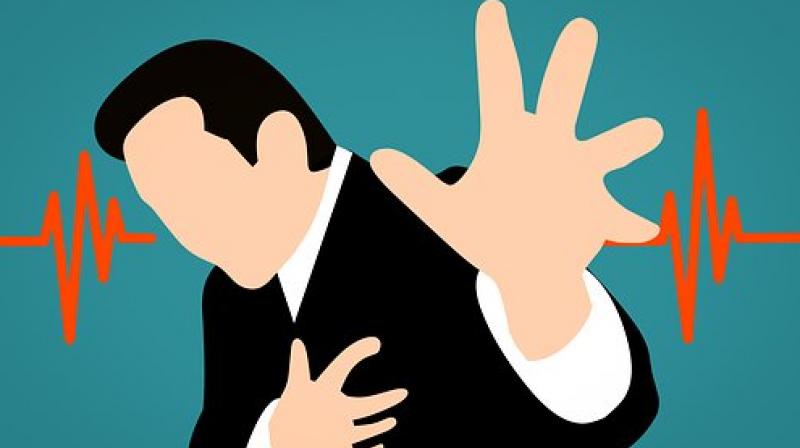Heart Failure clinics are the need of the hour: Experts
Heart failure is becoming an endemic in the country, affecting an estimated 8-10 million people.

India has reason to be alarmed over matters of the heart. A recent report published in the medical journal, Lancet stated there has been 50 per cent rise in heart diseases amongst Indians. Heart Failure is the leading cause of mortality and repeat hospitalisations amongst all heart diseases.
Heart Failure is a progressive disease, in which the heart muscle weakens and becomes stiff overtime, which reduces its ability to pump properly. This reduces the amount of oxygen and nutrients circulated to vital organs of the body. Heart Failure is becoming an epidemic in the country, affecting an estimated 8-10 million people in India.
HF imposes a significant social economic burden, primarily related to hospitalizations. Multiple hospitalizations are common after HF diagnosis. Comorbid conditions like hypertension, diabetes, COPDetc. play a central and increasing role in hospitalizations. Hence identification and management of these comorbid conditions is essential to avoid worsening of Heart Failure. Addressing emotional and physical wellâ€being, needs of a heart failure patient must be made an integral part of the care. This brings to fore the urgent need to address the disease burden by facilitating effective and quality care to patients at dedicated Heart failure clinics.
The concept of dedicated heart failure patient clinics is quite popular in western countries and there have been studies to evaluate the results of patients receiving treatment from such clinics. According to a study, heart failure clinics are associated with reductions in hospitalization and death rates.
Dr Dev Pahlajani, Intervention Cardiologist, Breach Candy Hospital, Mumbai says, “Heart Failure is a progressive condition, caused due to irregular pumping action of the heart muscle as it weakens or stiffens over time. Out of the total patients who visit me every month, approximately 10% patients have some degree of heart failure. The cases of heart failure are due to growing incidence of ischemic heart diseases and chronic conditions like diabetes and hypertension. It is significant to pay close attention to signs like shortness of breath, fatigue, swollen ankles, legs or abdomen, unexplained weight gain or increased nighttime urination etc. On experiencing any of these problems, one must immediately seek doctor’s advice. These symptoms shouldn’t be associated with old-age or any other disease.
Manage Heart Failure better
With recent advances in medical science, heart failure can be tackled as a cycle in 3 possible stages:
Identify the symptoms
People often confuse the symptoms of Heart Failure with signs of old age, this can lead to delayed diagnosis and the patient might reach the doctor at an advanced stage of the disease. It is important to pay close attention to signs like shortness of breath, need for elevated pillows while sleeping, swollen ankles, legs or abdomen or increased night time urination etc. One must not ignore these symptoms and seek medical advice immediately.
Timely Diagnosis and Treatment
The death rate amongst Indian heart failure patients is significantly higher than their counterparts in other geographies. According to INTER-CHF study, heart failure patients in India are approximately 10 years younger than patients in the U.S. and Europe with a mean age at the time of death being 59 years in India. Considering the Indian scenario and going by the success of heart failure clinics abroad, it becomes critical to facilitate the concept in India. There is a pressing need to build a strong healthcare ecosystem for heart failure patients under one roof.
Living with Heart Failure
Heart failure can be effectively managed, along with some positive lifestyle changes:
- Reduce fluid intake
- Control salt consumption
- Maintain a healthy diet
- Don’t smoke and limit alcohol intake
- Include moderate physical activity in your daily routine
- Avoid popping painkillers without doctor’s advice

